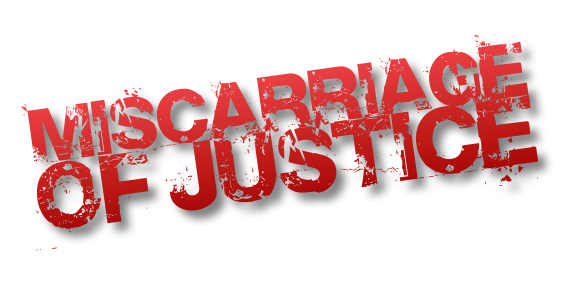We post news and comment on federal criminal justice issues, focused primarily on trial and post-conviction matters, legislative initiatives, and sentencing issues.

DANCE WITH THE GIRL WHO BRUNG YOU
 I used to practice in front of crusty old judge Walter J. Miller, who liked to warn attorneys that he expected them to “dance with the girl who brung you.” By that he meant that if you argued an evidentiary position in front of him, you were expected to maintain that position even if it became uncomfortable.
I used to practice in front of crusty old judge Walter J. Miller, who liked to warn attorneys that he expected them to “dance with the girl who brung you.” By that he meant that if you argued an evidentiary position in front of him, you were expected to maintain that position even if it became uncomfortable.
The government – which has a history of changing its position as the day, fashion, and its overarching goal of keeping people imprisoned may dictate – ran smack into that doctrine last week in the 7th Circuit. Dean Guenther was convicted of being a felon in possession of a firearm (18 USC § 922(g)(1)) in the District of Minnesota. Because he had three prior Minnesota burglaries, he was sentenced under the Armed Career Criminal Act. He appealed, and then tried a § 2255 motion. Both failed.
But some time after that, the 8th Circuit held that the Minnesota burglary statute was too broad to count as the kind of generic burglary that the ACCA intended to count against its predicate. Then, Johnson v. United States threw out the ACCA’s residual clause. Dean brought a 28 USC § 2241 habeas corpus motion in the 7th Circuit (where he was imprisoned) under the § 2255(e) saving clause. The district court denied his motion.
 Last week, the 7th Circuit reversed. A § 2255 motion is normally the exclusive method to collaterally attack a federal sentence, but the § 2255(e) saving clause provides a limited exception, letting a prisoner seek § 2241 habeas relief in the district where he is confined if “the remedy by motion is inadequate or ineffective to test the legality of his detention.” Generally, the saving clause works when the prisoner relies on an intervening statutory decision announcing a new, retroactive rule that could not have been invoked in his first § 2255 motion and the error is serious enough to amount to a miscarriage of justice.
Last week, the 7th Circuit reversed. A § 2255 motion is normally the exclusive method to collaterally attack a federal sentence, but the § 2255(e) saving clause provides a limited exception, letting a prisoner seek § 2241 habeas relief in the district where he is confined if “the remedy by motion is inadequate or ineffective to test the legality of his detention.” Generally, the saving clause works when the prisoner relies on an intervening statutory decision announcing a new, retroactive rule that could not have been invoked in his first § 2255 motion and the error is serious enough to amount to a miscarriage of justice.
Dean’s motion fit everything except the question of whether his ACCA-enhanced sentence amounts to a miscarriage of justice. Since ruling that the Minnesota burglary was not an ACCA predicate, the 8th Circuit has reversed its position, but the 7th Circuit more recently ruled that the Minnesota burglary could not be used to qualify a defendant for the ACCA.
Dean and the government argued whether the ACCA sentence was a miscarriage should rely on 7th Circuit law (which said it was) or the 8th Circuit (which now says it might not be). The Circuit settled the issue easily, noting that in a prior case, the government argued that “the law of the circuit of confinement — this circuit — should control. That position, if accepted, meant no relief.” At the time, the 8th had held Minnesota burglary was not an ACCA predicate but the 7th had not ruled on the question. By the time that case reached the court of appeals, the tables had turned. The 8th had reversed itself, but the 7th had held that Minnesota burglary could not be counted under the ACCA.
 In the prior case, of course, the government’s position was that the 7th Circuit’s interpretation should govern, because that had a more severe outcome for the defendant. In Dean’s case, however, the 8th Circuit’s interpretation would have hammered the defendant more. Bu the government’s logic, that one should apply.
In the prior case, of course, the government’s position was that the 7th Circuit’s interpretation should govern, because that had a more severe outcome for the defendant. In Dean’s case, however, the 8th Circuit’s interpretation would have hammered the defendant more. Bu the government’s logic, that one should apply.
The court did not state the obvious in such stark terms, but it did rather pointedly note that prior case, “we held the government to the position it took in the district court and applied the law of this circuit. We follow the same approach here.”
Thus, under 7th Circuit precedent, Dean’s Minnesota burglary convictions are not ACCA predicates (meaning he faces a maximum sentence of 10 years instead of a minimum sentence of 15 years).
Enjoy the dance, Mr. United States Attorney. She’s your date, after all.
Guenther v. Marske, Case No 17-3409, 2021 USApp LEXIS 14055 (7th Cir May 12, 2021)
– Thomas L. Root

